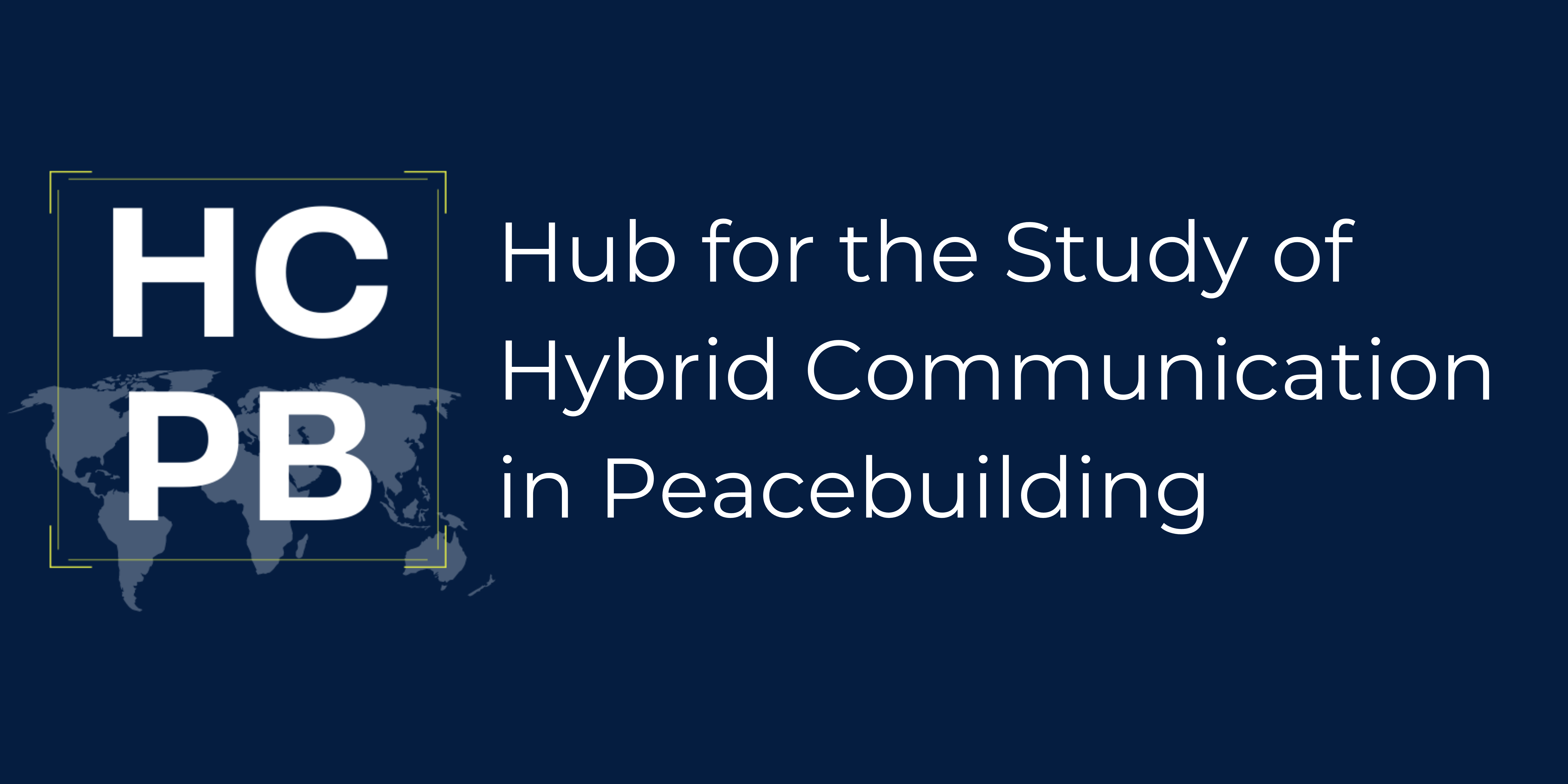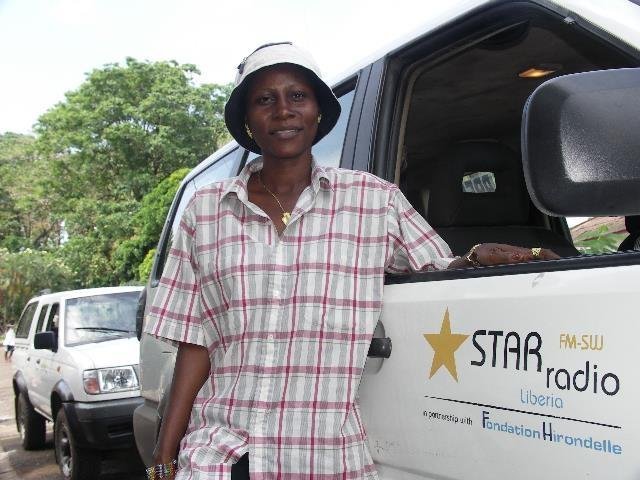By Nojoud Shraim, MA International Public and Political Communication, JNL61004 Communication in Peacebuilding, University of Sheffield.
Star Radio was established by Fondation Hirondelle in Liberia after the first civil war in 1997 as a public service radio station that advocated for peace, good governance and development. However, due to its financial struggles, Star Radio went off-air in 2010 (Fondation Hirondelle). To analyse Star Radio as a communicative peacebuilding project in post-conflict Liberia, I have applied Pukallus’ (forthcoming) three categories of civil norms and the three rules of discursive civility.
According to Pukallus (forthcoming) there are three categories of civil norms that are essential for civil peace as peaceful cooperation: assent to civil peace, substantive civility and building civil capacity and civil competencies. Firstly, and with regard to assent to civil peace, Star Radio was initially established by Fondation Hirondelle to encourage “peace, good governance, and development” (Fondation Hirondelle) in the Liberian post-conflict society. Public service media play a crucial role in state building and nation building practices (Goodfriend 2012) which simultaneously contribute to the peacebuilding process. One of the assent to civil peace category’s elements is “the openness to a future that accommodates civil peace … being future-facing through agreeing to actively participate in the peace process or to at least passively assent to it” (Harrison & Pukallus, forthcoming, p.14). Star Radio committed to contribute to the peacebuilding process by acknowledging the society’s need for development. For example, according to the study conducted by Spurk et al. (2010), Star Radio concentrated more on news events such as stories on crime, rape and disaster with around 15.9% and around 11.6% on social development news which were both the highest among the other three radio stations in the study. This indicates that Star Radio focused on news stories that are more related to citizens rather than formal political news. Spurk et al. (2010, p.182-183) argue that “It can be said that Star, … are closer to people’s concerns than to elite issues. This is reinforced by the fact that the topic of ‘social development’, which comprises issues close to ordinary people’s needs and concerns such as ‘education’, ‘health and nutrition’, ‘environment’, ‘water and sanitation’ and ‘poverty’, was only considered as a serious news topic by Star (11.6 per cent)”. The other element of assent to civil peace category is engaging with the past by acknowledging the civil war tragedies in order to progress the peacebuilding process. However, according to Spurk et al. (2010) during the period of the study, Star Radio did not seem to mention any topics that are related to civil war and reconciliation.
Secondly, substantive civility, Star Radio produced a programme that was called “We too have a voice” to draw attention to the civil rights of people with disability in general and war- disabled people particularly. These types of programmes emphasised the importance of civil rights and the equality between citizens, especially of those who were affected by the civil war or those who are considered as minorities and lack necessary representation in the media. Media influences societies and individuals who are alienated or experience a feeling of alienation within their societies (Turska-Kawa 2011). Harrison & Pukallus (forthcoming) explain in the editorial guidelines that are related to rights in the context of substantive civility that news reporting should focus on the equal rights of each citizen in the society. Thus, Star Radio gave these individuals that are considered as minorities and/or alienated a platform to share their experiences and draw the attention of both civil society and the government to the civil rights of these individuals in order to achieve equality.
Lastly, building civil capacity and civil competencies, Harrison & Pukallus (forthcoming) discuss the institutional capacity and the individual capacity in the context of building civil responsibility. “With regard to the former, it is concerned with the building of new communicative, legal, economic and political institutions. With regard to the latter, it is concerned with the empowerment of citizens as political and civil actors” (Harrison & Pukallus, forthcoming, p.18). In terms of individual capacity, Star Radio produced in partnership with The National Democratic Institute (NDI) a programme that was called “The Legislative Spotlight”, this programme according to NDI (2009) aimed to connect lawmakers to the voters and establish a public sphere for public policy debate where legislators engage in discussions on topics such as electoral reform legislation, the national budget and women’s political participation in order to help lawmakers see other perspectives as to make well-informed decisions and to educate citizens on legislation and law-making before they vote. The programme discussed new topics and hosted new legislators every week, citizens and potential voters could call and engage in the discussion. These types of programmes encouraged citizens’ political participation and engagement which consequently improves the democratisation process. Howard (2002, p.1) emphasises the important role of reliable media in resolving conflict “It’s the kind of media that enables a society to make well-informed choices, which is the precursor of democratic governance. It is a media that reduces conflict”. Moreover, the media can play a crucial role in promoting civil associations and institutions (Wanyande 1996) and that was translated by Star radio and NDI through “The Legislative Spotlight” programme. Along with educating Liberian citizens on elections and legislations, this programme encouraged citizens’ political participation and involvement in the political sphere. According to Spurk et al. (2010) the media is supposed to help hold lawmakers accountable to the citizens and to help the latter to be informed, to engage and participate politically. Toure (2002) confirms that Liberian independent media took part in educating citizens on critical issues and creating a space for public debate by civil society.

In order for a communicative peacebuilding project to achieve the skill of discursive civility, it has to follow the three discursive civility rules (Pukallus forthcoming). Starting with the first rule to analyse Star Radio, participants have to make a commitment to manage their individual negative emotions (mode of expression: emotional forbearance). As a result of civil war, post-conflict societies are generally divided and fragile either based on a civic or ethnic conflict (Curtis 2000). Individuals in post-conflict societies are affected psychologically (Curtis 2000) due to the civil war’s brutality and violence. Star Radio produced two programmes in an attempt for society’s recovery. “Star Contact” was a programme that aimed to reconnect families that were separated by war and help them find each other (Fondation Hirondelle), and “Save the children” was a programme aimed to reconnect children to their families after they were separated due to the war (Kintz 1999). The individuals who participated in these types of programmes went through a traumatic experience as a result of separation and loss of their loved ones which can translate into emotions such as anger, sorrow and fear. On the other hand, the opportunity given by these programmes to restore these individual’s hope in reconnecting with their loved ones again can provoke different types of emotions such as hopefulness and joy. Therefore, these two programmes created a safe space for citizens affected by the civil war to express and share their different types of emotions.
The second discursive civility rule is participants have to make a commitment to listen to the other and importantly hear the other (mode of conduct: respectful listening). Programmes such as “We too have a voice” and “The Legislative Spotlight” were produced to create a platform for citizens from different backgrounds to express their political opinions and present their civil and political views from different perspectives and point of views which created a dialogue inclusive of citizens along with decision makers. According to Baú (2016, p.356) “the concept of dialogue is central in order to initiate a meaningful and sustainable process of development”. Star Radio broadcasted in 14 Liberian languages in addition to English, Liberian-English and French and it covered the Liberian territory (Kintz 1999) (Fondation Hirondelle). Furthermore, the Liberian diaspora was able to engage with Star Radio through their official website with around 40,000 visits per month which enabled all citizens across the country in addition to the Liberian diaspora to listen and view the radio content and understand it in their languages as well as enabling them to make their contributions from anywhere in the country and in the languages they speak and understand.
The third discursive civility rule is that participants have to commit to making only such contributions that are supportive of the pursuit of peace (character of the discursive contribution: requirement for reasonableness). Star Radio, as mentioned previously was established by Fondation Hirondelle, as a public service broadcasting media that aspire to contribute to the peacebuilding process in Liberia (Fondation Hirondelle). While there is not enough data about Star Radio as their official website was taken down in 2010 after the radio’s closure, Star Radio according to Kintz (1999) and (Fondation Hirondelle) was considered to be a reliable source of news and information in Liberia as an independent free media that was able to criticise the government, committed to provide the audience with transparent covering of news and events in different Liberian languages as well as their commitment in providing the audience with a space where they can participate, engage politically and civilly and express their emotions after the traumatic civil war.
In conclusion, Star Radio was successful in establishing a radio station that advocated for peacebuilding and peacekeeping in post-conflict Liberia and it was able to create a safe discursive space for individuals to express their emotions and went beyond that by working to find solutions to problems and contributed to the democratisation process and enabling citizens to politically engage and to participate in decision making. However, Star Radio had to close in 2010 due to financial struggles after donations had stopped.
References:
- Baú, V., (2016). Citizen engagement in peacebuilding: A communication for development approach to rebuilding peace from the bottom-up. Progress in Development Studies. 16(4), 348-360.
- Curtis, D.E.A., (2000). Broadcasting Peace: An Analysis of Local Media Post-Conflict Peacebuilding Projects in Rwanda and Bosnia. Canadian Journal of Development Studies/Revue. 21(1), 141-166.
- Fondation Hirondelle. Star Radio – Liberia. Fondation Hirondelle. [Viewed 14 January 2021]. Available from: https://www.hirondelle.org/en/liberia-en
- Goodfriend, E., (2012). Peacebuilding and Public Service Media: Lessons from Star Radio and media development in Liberia. MSc Dissertation, the London School of Economics and Political Science. [Viewed 14 January 2021]. Available from: http://wwww.lse.ac.uk/media-and-communications/assets/documents/research/msc-dissertations/2011/70.pdf
- Howard, R., (2002). AN OPERATIONAL FRAMEWORK FOR MEDIA AND PEACEBUILDING. Institute for Media, Policy and Civil Society. Vancouver, B.C. [Viewed 14 January 2021]. Available from: https://reliefweb.int/sites/reliefweb.int/files/resources/489A4D4303E98D21C1256D5700479E88-impacs-gender-03.pdf
- Harrison, J & Pukallus, S., (forthcoming). The civil norm building role of news journalism in post-civil war settings. Under review, Journalism
- Kintz, G.A., (1999). Evaluation of Foundation Hirondelle/Star Radio Project. International Foundation for Election Systems, Monrovia. [Viewed 14 January 2021]. Available from: https://pdf.usaid.gov/pdf_docs/PDACH717.pdf
- The National Democratic Institute., (2009). RADIO STATION CONNECTS LAWMAKERS WITH THEIR CONSTITUENTS IN LIBERIA [Online]. NDI. [Viewed 14 January 2021]. Available from: https://www.ndi.org/Radio_Station_Connects_Lawmakers_Constituents_in_Liberia
- Pukallus, S., (forthcoming). Communication in Peacebuilding. Civil Wars, Civility and Safe Spaces. Basingstoke: Palgrave Macmillan, under contract.
- Spurk, C., et al., (2010). Measuring the democratic quality of radio news: experiences from Liberia. Journal of African Media Studies. 2(2), 173-192.
- Toure, A., (2002). The Role of Civil Society in National Reconciliation and Peacebuilding in Liberia. International Peace Institute. [Viewed 14 January 2021].
- Turska-Kawa, A., (2011). The (dis)alienating function of the media. The role of mass media in building a civil society. Psychology of Language and Communication. 15(2), 176-201.
- Wanyande, P.M., (1996). The media as civil society and its role in democratic transition in Kenya. African Media Review. 10(3),
Copyright: Featured Image and illustrative image in the text: Fondation Hirondelle, Global Giving: https://www.globalgiving.org/projects/star-radio-liberia/photos/#menu
*All views expressed in this blog post are the ones of the author, not CFOM’s or the Hub’s.

